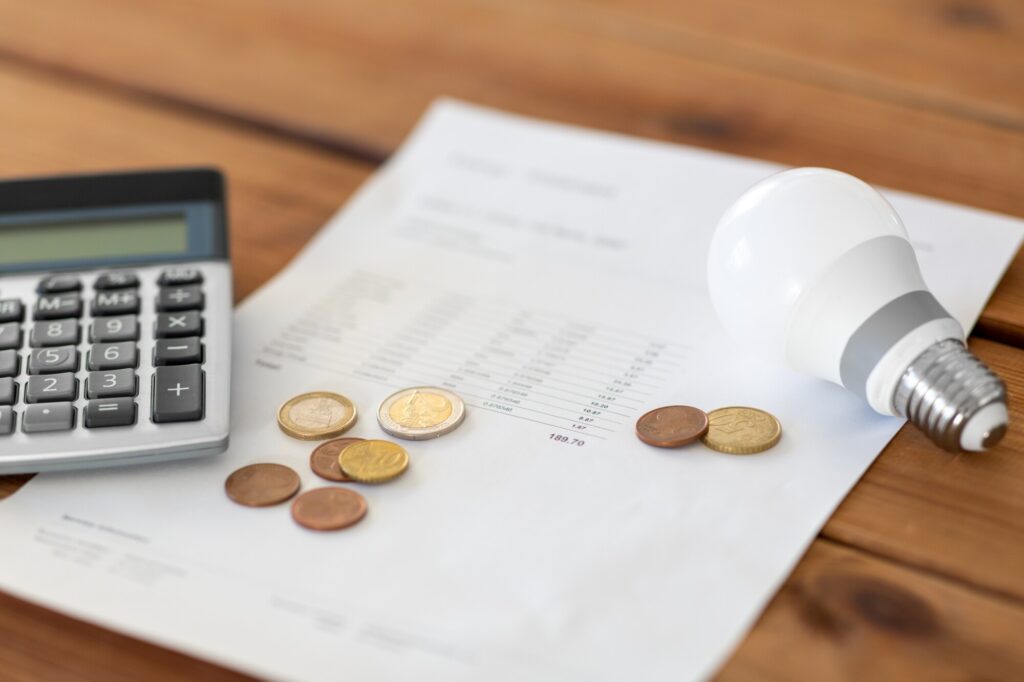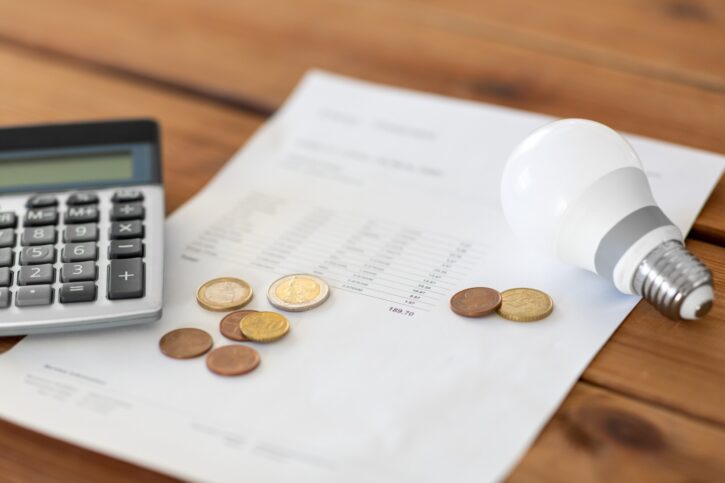
How to Cut Back on Energy Costs
Do you want to cut down on energy costs and save more power this year? Or perhaps you feel like you’re not saving enough with your current strategies? If so, we have some answers for you!
Power costs take up a large portion of your energy bills and even more, if you fail to spend it efficiently. It doesn’t only refer to the light or appliance use but also heating and cooling systems around the home. So, with all the factors involved with it, how can you keep those costs low?
Here’s your guide to cutting down on energy costs throughout the year. Let’s begin!
Keep an Energy Audit
One way to keep track of how much power you use towards specific uses or appliances is by requesting your utility company for an energy audit. It’s usually a free service, so you don’t have to worry about having extra expenses for it each time.
An energy audit tells you how efficiently you use power in your home. This way, you can identify where the imbalance lies, if any. At the same time, it shows you where you should put some of that power towards.
For example, if you use a lot of it for electrical devices, you can limit that so more power goes towards your HVAC.
Cut Down Phantom Energy
Some people tend to leave their appliances plugged in even when they aren’t in use. But a common misconception is that they don’t consume power until you use them. In reality, it still takes up energy when it’s off as long as you keep it plugged in.
Of course, appliances use less energy when they’re off, but they consume power nonetheless. The best way to ensure it doesn’t take up energy is by unplugging it. This way, power stays at its source.
A tip for this is to unplug anything you don’t use often or don’t need to be plugged in. For example, your computer or the TV. If you need to keep other appliances plugged in, be sure not to leave them turned on idly or make the most of every moment you have them on.
Change to LED Lights
You might have heard about how LED lights can cut down your energy bills. It can lower power costs by up to 90% more than other lighting options. So, you get to benefit from long-term savings.
Note that you don’t have to change all the bulbs in your home to new LED lights. If you’re on a budget, just switch the ones in the major rooms around the house. For example, the living room, master bedroom, or kitchen.
You can also consider installing dimmer switches to control light output. Many consider this a quick and easy way to transition to low-cost power consumption in your home. They restart every few minutes in an unnoticeable manner, allowing the lights to modulate the amount of energy needed.
Fill Up Your Fridge and Freezer
Energy efficiency plays a major role when it comes to keeping a low electric bill. Your refrigeration is one of the appliances responsible for that.
Every time you open your fridge, cool air escapes and causes your fridge to recondition the air inside it. But even if you limit the number of times you open and close your fridge, it still produces the same effect.
One way around it is by filling it up or ensuring it has less room for air to move around. The food and drinks in your fridge act as insulation, so everything is more likely to stay cool, even without a change of habit.
Close Doors and Windows
Simply closing your doors and windows can change how much power you consume. It keeps the air within your home at a specific temperature. And so, it contributes to how much energy your heating and cooling system uses.
Moreover, you get to keep the heat out, especially during warmer months. Leaving your doors and windows open makes room for hot air or sunlight to enter. It heats your home and urges your HVAC to push harder.
If there’s no way for them to come in, it won’t be a problem for your system. You can also consider learning how to weatherstrip for more effective results.
Use Ceiling Fans
Ceiling fans can help lower bills by encouraging better air circulation in your home. If you have an air conditioner, the fan can help lower the power it consumes by making sure there’s good airflow.
A ceiling fan in your attic or basement also contributes to how much the main home heats up. When you clear hot air from there, the rest of your home will likely cool faster. As a result, you get to lower your bills!
Have Regular HVAC Maintenance
Your HVAC plays an important role in maintaining an energy efficient home. If there are damages or issues, the system might have trouble managing your home. And so, it consumes more power than it’s supposed to. Perhaps repairs and maintenance are not enough to cut HVAC energy consumption. You might need a new HVAC system that is more energy-saving and durable.
An HVAC system also affects how other appliances in your home function. For example, if your air conditioner has trouble cooling, your thermostat might have trouble reading the right temperature.
When you schedule your HVAC for regular maintenance, you get to address those problems before they worsen. This way, you can limit how much your energy bills increase and lower them as soon as possible.
Use Solar Power
One of the best ways to reduce the amount of power you consume is to move to solar energy. When you switch to solar, you can worry less about how much you consume because you produce your own power.
The downsides to solar panel installation include pricey upfront costs and access to resources. But besides that, you can get several benefits, from cashback and tax advantages to lower energy costs and unlimited power use.
Solar energy is also sustainable, allowing you to reduce your impact on the environment.
Maintain Good Insulation
You can save energy when you maintain proper insulation inside your home. It allows you to reduce the amount of power your system consumes and limits it to the necessary amount.
Think of it this way, if your home has no insulation, it could get too cool during winter or too hot during summer. That’s because there’s no barrier to controlling how the temperature around your home affects it.
Moreover, it also increases how comfortable your home feels. Through this, you get to enjoy a home that’s efficient, cost-effective, and comfortable.
Regulate Temperature
To ensure insulation and your HVAC system works effectively, it’s good to make sure your temperature stays consistent. Fluctuating temperatures can cause your system to have trouble keeping your space cool or warm. So this causes them to exert extra effort to achieve a specific temperature.
Many suggest getting a programmable thermostat to help regulate room temperature. When you get a programmable thermostat, you can manage how your HVAC functions according to the temperature or your routines. This way, you get to automate how you reduce energy costs.
Regulating the temperature also adjusts how your appliances work. For example, your air conditioner will use less power when the thermostat detects the room is already cold. With this, you don’t have to worry about energy going to waste without knowing.
Maximize Appliance Use
Many also recommend making sure you make the most of every appliance when it’s opened. This way, you get to ensure you use power efficiently.
For example, if you use the oven, you can bake more than one batch of treats at a time. Another is using your hot water heater for more than one purpose. One way is by using it in a bath and then using the remaining to disinfect some of your stuff.
It’s not always guaranteed that you get to lower your electric bill when you do this. Although, it helps you reduce the number of times you need to use them and allows you to get the most results from using the power.
And so, it lowers how much energy goes to waste with every use.
Cut Down Energy Costs Starting Today
There are several ways to cut down energy costs, but it helps to understand how those systems work to know how to get the most out of them. Many suggest looking into sustainable options or controllable features to regulate your power use.
It includes devices like solar panels, programmable thermostats, and simple weather-stripping or insulation. It also involves your practices, especially with how you leave and use electrical appliances around your home.
If you want to learn more, check out the rest of our blog!







.gif)


